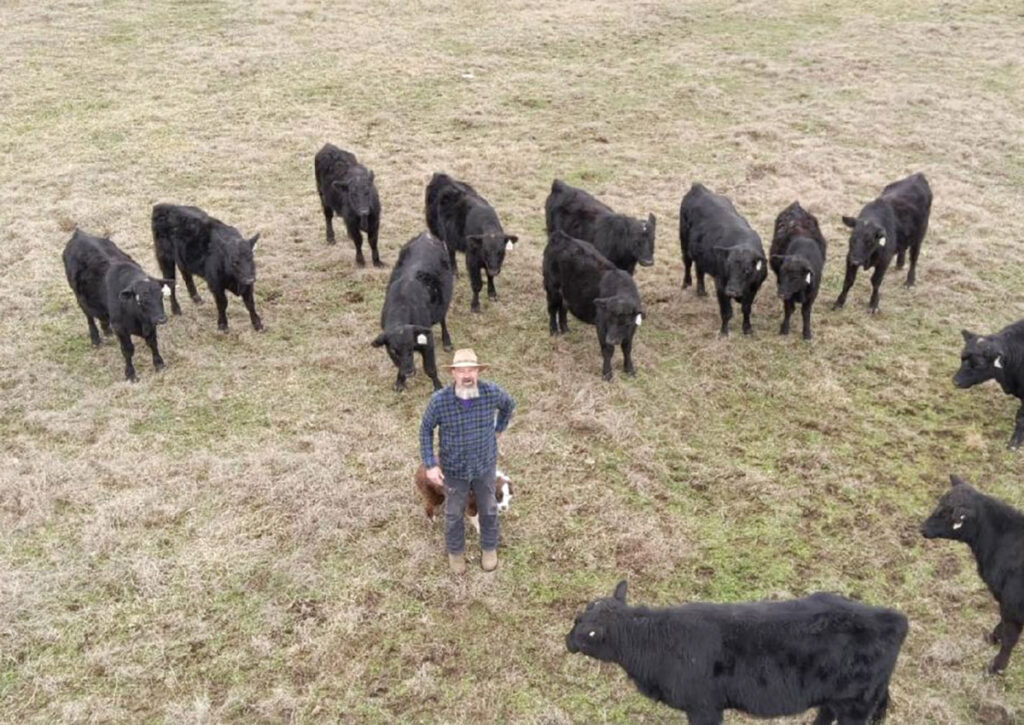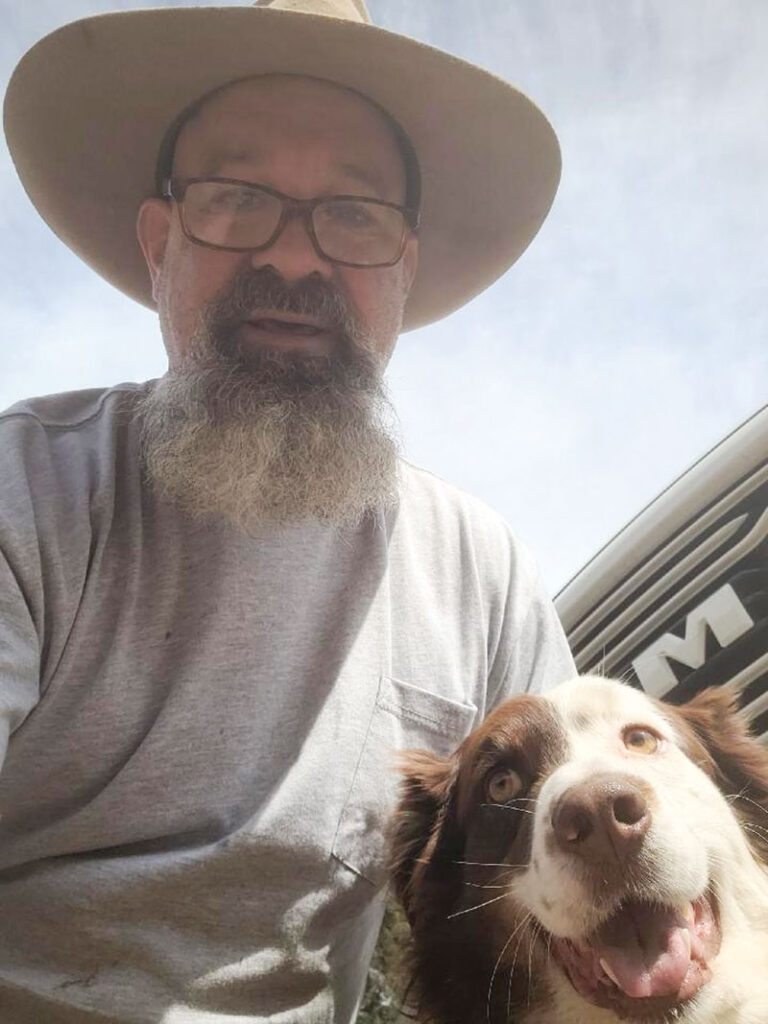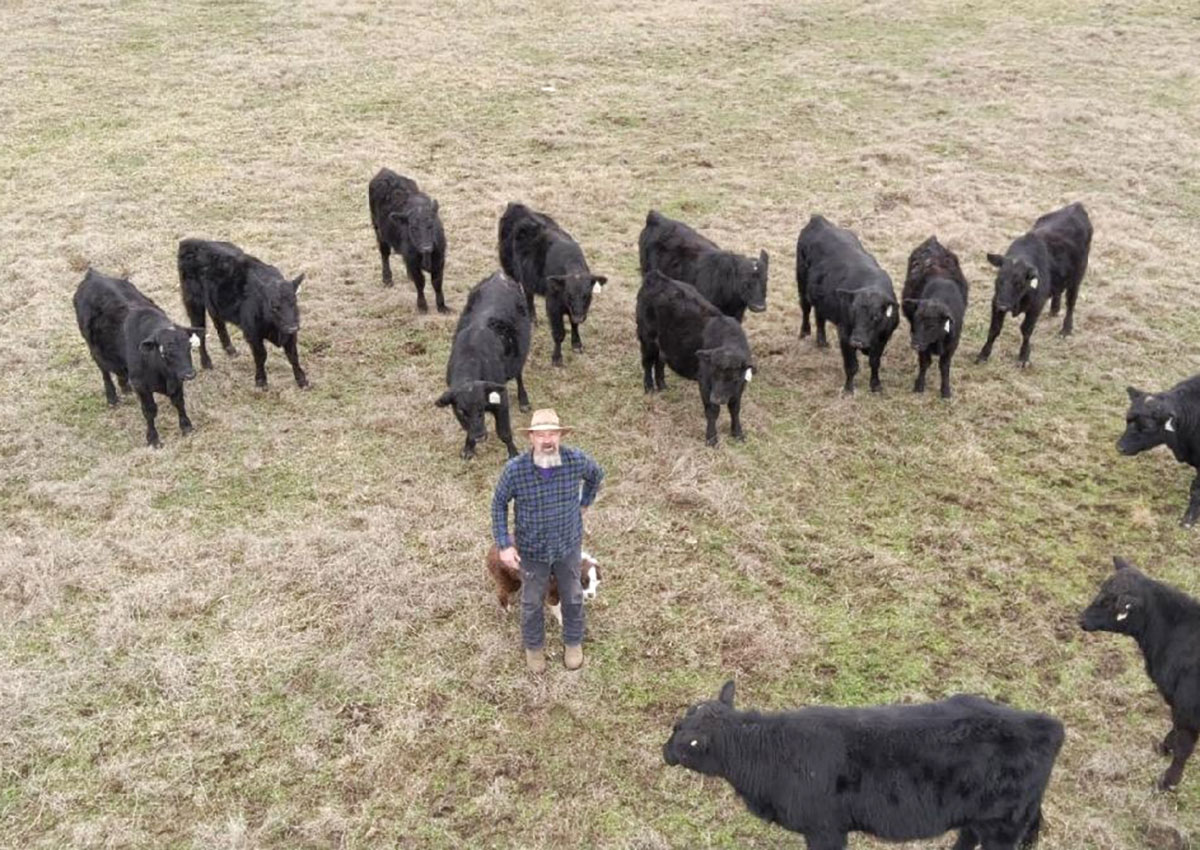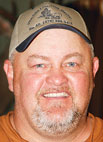
After returning to Arkansas from California, Mike Reed partnered with his father to create Reed Cattle Company
CANEHILL, ARK. – Mike Reed grew up in Northwest Arkansas but when he got the chance to go to California, he jumped at it.
“I’d graduated from the University of Arkansas with a degree in mechanical engineering and I knew I didn’t want to be a farmer,” he recalled with a laugh.
After 20 years in the Golden State and after being laid off from his engineering job, Mike took another look at things.
“I came back here with my wife Daylene in 2012 and bought some cows and 70 acres next to the family farm,” he shared. “I’ve been partnering with my dad, William Reed ever since.”
The Reed Cattle Company in Washington County, Ark., has been in business for more than 35 years. Located outside Canehill, they are a seed stock producer — raising, breeding and selling registered black Angus breeding stock.
“When I first came into this, I felt like black Angus was the best known name in beef in this part of the country. They are the ones you see in all the advertising, the most disease resistant and are easy calving. Even being black, they seem to be pretty heat resistant and most of all, they are what everybody wants when it comes to the marketing – Angus beef.
“We probably have about 100 momma cows and right now with their calves plus bulls and heifers, we’re running close to 200 animals at the moment.’
Reed Cattle Company sells about 60 bulls annually,
We sell about 60 bulls annually, in addition to “30 to 40 heifers,” typically through private treaty.

They raise their stock on a total of 400 acres, both their own land as well as additional leased acreage.
The Reeds like their cattle home-grown, just like that forages.
“We’re trying to keep it all natural so we cut all our own hay and feed that in addition to our pasture,” Mike explained. “In that way, we don’t use any grain or feed any additional supplements.
“We do the typical minerals and salt blocks but nothing else. We don’t do any antibiotics except when absolutely needed. You can tell when an animal is distressed and then of course, we’ll treat them but only when necessary. Basically, we’re talking less of our own input which of course, means more output as in more money at sale time.”
Reed Cattle Company does some AI breeding, but the majority of their breeding is done with bulls from the Colorado-based Pharo Cattle Company.
Cattle are bred to have a more moderate frame, which the Reeds find to be more efficient, especially since their herd is grass-based.
“Our goal is to raise a 1,000- to 1,100-pound animal. We wean the calves when they are half that size, 400 to 500 pounds,” Mike explained. “To raise a bigger cow, one that runs to 1,700 pounds, she uses more grass, more feed but without a bigger return. We’re looking to get more pounds to the acre. That’s true efficiency.”
Managing their forages is also another area of efficiency.
“We do some rotational grazing as we’d like to eliminate haying all together but we aren’t there yet,” Mike said. “The goal is to get things to a point where we move cows every day and let those paddocks rest 30 days in between.
“We are with a group here in northwest Arkansas known as the Grass Grazers Group. It’s a group of area farmers who raise cattle as well as sheep and goats, working to produce the best grass we can.”
“We are all basically grass producers. That’s what we want to be. The way I heard one fellow put it is that our cows are like our employees. We’re the grass producers and they work for us, helping us to cultivate that grass, cutting it, fertilizing it. We want to be as efficient at it as possible. We haven’t got there yet but that’s the plan.”
Mike, Daylene, his father William and mother Ginger welcome any future customers to contact them for a time to come by their Northwest Arkansas location.







